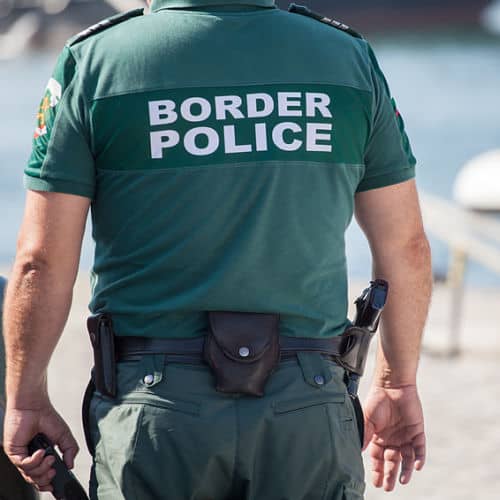Workshop: Critical Approaches to Irregular Migration Facilitation: Grounding the Theory and Praxis of Human Smuggling
Where: University of Texas at El Paso, El Paso, Texas (USA)
When: April 6, 7 and 8, 2017
The facilitation of irregular migration – labelled by the state as migrant, people or human smuggling – has been primarily articulated as a violent, exploitative practice under the control of transnational crime. It has also been tied to often problematic articulations of class, race, gender, informal forms of labour and sex work. Furthermore, the language of crisis, crime, violence and humanitarianism often associated with references to smuggling has reified specific geographic locations and their people as inherently dangerous and in need of surveillance and control. Amid this context, the explosive militarization of border control practices and stricter immigration criminalization policies have been articulated as the only effective measures to fight the alleged spread of smuggling, depicted as a global security threat under the control of networks of vast, dark reach. The migratory flows in the Mediterranean, the Horn and the North of Africa, the Pacific, the Middle East, the US Mexico Border and Central and South America; the punitive efforts to control human mobility and the narratives pertaining to transits and their facilitation are clear examples of this approach. More often than not unintended outcomes have ultimately outweighed national security and border protection policy. The vast border and immigration enforcement systems have prompted spiralling financial costs. Attempts to block or contain migration routes have only redirected unauthorized migration flows into more dangerous and remote routes, leading to the injury, death and disappearance of thousands of people on the move. Furthermore, border enforcement has played a role in the very reliance of migrants and refugees on often dubious facilitators of migration services or criminally-organized entities that engage in specific forms of violence.
Amid the panic caused by the overly-simplistic, fear-driven narratives of smuggling and those behind their facilitation, the social, economic, cultural, moral and affective significance of smuggling to and from the perspective of its actors (facilitators, clients, their families and communities) has remained vastly unexplored.
To this date, narratives of tragedy, death, graphic violence, and transnational crime have continued to obscure the basic realization that the facilitation of irregular migration is ultimately a response to the lack of channels for legal entry and transit to which so many yet specific few are subjected.
Building on the experience at the European University Institute in Florence in the Spring of 2016, this second edition of the Smuggling Workshop seeks to continue the conversation towards empirically grounded smuggling research, a field often silenced by the onslaught of anecdotal evidence or technocratic-legalistic perspectives concerning the facilitation of irregular migration. This time around the workshop will have a particular focus on collectively building the theory and documenting the praxis of human smuggling, relying on the empirically documented perspectives of its actors.
This workshop is a collective effort to comprehend the ways in which migrants, refugees, their families and communities along with those facilitating their transits perceive, talk about, and partake in the phenomenon.
The workshop takes place at a critical time in migration studies, when despite the vast abundance of scholarship on the lives of migrants and refugees, grounded empirical work on the processes involving their journeys and the effects and affects in them interwoven is still scant and scattered across the disciplines.
A gathering of innovative and critical voices in smuggling from academic and policy circles, the workshop seeks to consolidate the creation of an interdisciplinary and global collective of professionals engaged in the empirical study of migration facilitation that integrates perspectives from the global north and south. With this goal in mind, we invite abstracts on the theme of irregular migration/human mobility facilitation for an international workshop to be held on April 6, 7 and 8, 2017 at the University of Texas at El Paso. We seek to bring together critical, empirical engagements on the facilitation and brokerage of irregular migration as witnessed locally, regionally and comparatively.
Some themes to consider include theoretical and empirical engagements with:
- The political economy of human smuggling/facilitation of irregular migration
- Trans-Local/trans-regional/global smuggling practices
- Comparative and historical perspectives on smuggling
- The converge of migration facilitation with other criminal/ized markets and/or practices
- Smuggling, trafficking and “modern day slavery”
- Etiology of violence and victimization in smuggling
- Philosophical, ethical and moral dimensions of smuggling
- Race, class and gender as manifested in smuggling practices and smuggling research
- Theory and methods in smuggling research and their implications and critiques
- Anti-smuggling law enforcement and prevention campaigns (risks, side-effects and consequences)
- Role of stakeholders in anti-people smuggling operations (IOM, UNODC, Frontex, CBP, ICE, etc.)
- Global migration governance and domestic law initiatives on anti-people smuggling measures
OUTCOMES
Building on the experience of the first workshop, selected contributions will be part of a series of proposals for special issues and/or edited collections on the facilitation of irregular migration. We look forward to receiving and considering submissions that encompass the complexity of migration facilitation across and within regions, regimes and time periods, and for selected participants to be engaged in the publication process.
SUBMISSIONS
Preference will be given to work that draws on ethnographic research. Please submit a 250-300 word abstract to smugglingworkshop@gmail.com by November 15th, 2016. Participants will be notified of their acceptance by December 1st, 2016. Organizers will provide verification letters for participants requiring visas. Workshop papers are due by March 15th, 2016. Please be advised that as a condition of your acceptance, and given the working, creative and intensively collaborative nature of this second edition of the workshop, all participants must commit to submit their work by the deadline. Questions can be addressed to the organizers, Luigi Achilli at the European University Institute (Luigi.Achilli@eui.eu), Antje Missbach at Monash University (antje.missbach@monash.edu) and Gabriella Sanchez at the University of Texas at El Paso (gesanchez4@utep.edu).
CO-ORGANIZED BY:
| National Security Studies Institute University of Texas in El Paso Gabriella E. Sanchez gesanchez4@utep.edu |
Migration Policy Centre European University Institute Luigi Achilli Luigi.Achilli@eui.eu |
School of Social Sciences Monash University Antje Missbach antje.missbach@monash.edu |





